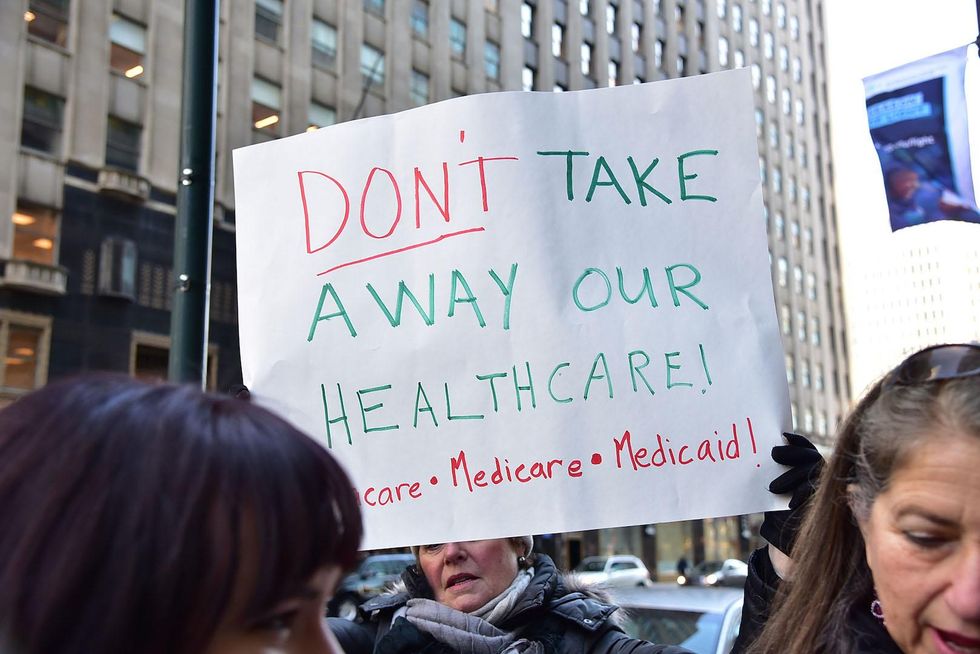
(Photo by Lisa Lake/Getty Images for Moveon.org)

Tuesday, on their first day back in session, Republican legislators set an aggressive timeline to begin dismantling Obamacare. However, they're already facing the first of what are likely to be several major snags: repealing the law without an immediate replacement will mean a lack of tax revenue and a lot of debt they aren't eager to incur.
GOP leaders have long been open about the fact that the "repeal" part of "repeal and replace" was contingent in some ways on the "replace" part: they had to have a plan ready to go or they would have a hard time getting through the next few years while one was written without the tax revenue Obamacare brings in. They've even floated the idea of repealing Obama's signature healthcare law — but effectively delaying that repeal for the next three years, reported Politico in early December 2016:
They’re crossing their fingers that the delay will help them get their own house in order, as well as pressure a handful of Senate Democrats — who would likely be needed to pass replacement legislation — to come onboard before the clock runs out and 20 million Americans lose their health insurance. The idea is to satisfy conservative critics who want President Barack Obama’s signature initiative gone now, but reassure Americans that Republicans won’t upend the entire health care system without a viable alternative that preserves the law’s popular provisions.“We’re talking about a three-year transition now that we actually have a president who’s likely to sign the repeal into the law. People are being, understandably cautious, to make sure nobody’s dropped through the cracks,” said Senate Majority Whip John Cornyn (R-Texas).
This approach has been the subject of criticism from some Republicans like Sen. Rand Paul (R-Ky.), who has insisted that the law shouldn't be repealed unless there is an immediate replacement, and Democrats like Rep. Nancy Pelosi (Calif.), who suggested that the only thing repeal and replace had going for it was alliteration. “[But] This repeal and delay, it doesn’t even have alliteration. It has nothing,” she said.
The Wall Street Journal reported Friday that if the law is repealed without a replacement, Republican lawmakers "would face a tough vote to approve new taxes, find spending cuts or create a system where fewer people are insured":
While repealing the health law’s coverage provisions would save the government some money because it would no longer have to defray many people’s health-care costs, a full repeal of the law would cost roughly $350 billion through 2027, according to an estimate released this past week from the Committee for a Responsible Federal Budget, an anti-deficit group...The taxes in question largely fall into two camps: those directly related to health-care costs, such as the so-called Cadillac tax on expensive, employer-provided health-insurance plans, and those levied on wealthy individuals to help pay for the law’s expanded coverage. Because of that, Democrats have said the GOP effort to repeal the health law is really aimed at slashing taxes for the affluent.
Sen. Ron Wyden (D-Ore.), the top Democrat on the Senate Finance Committee, called this a "Trojan horse for cutting taxes and raising health-care costs.”
Still the battle over when to repeal is heating up, even as some insist there is already a replacement bill that was released in June 2016 that is ready to go when Obamacare is finally voted out.